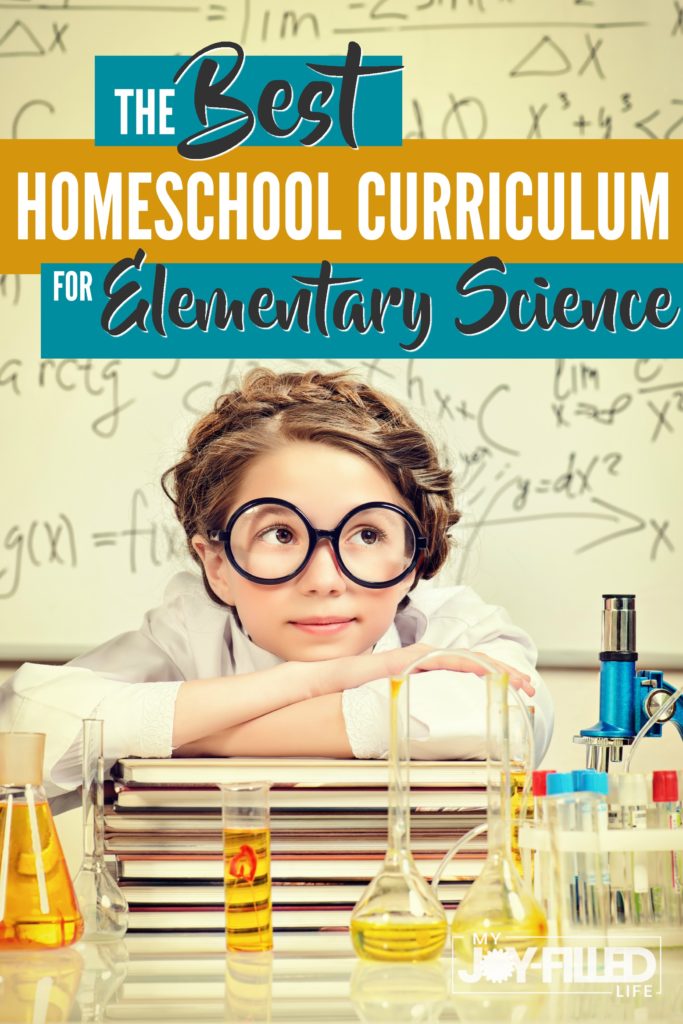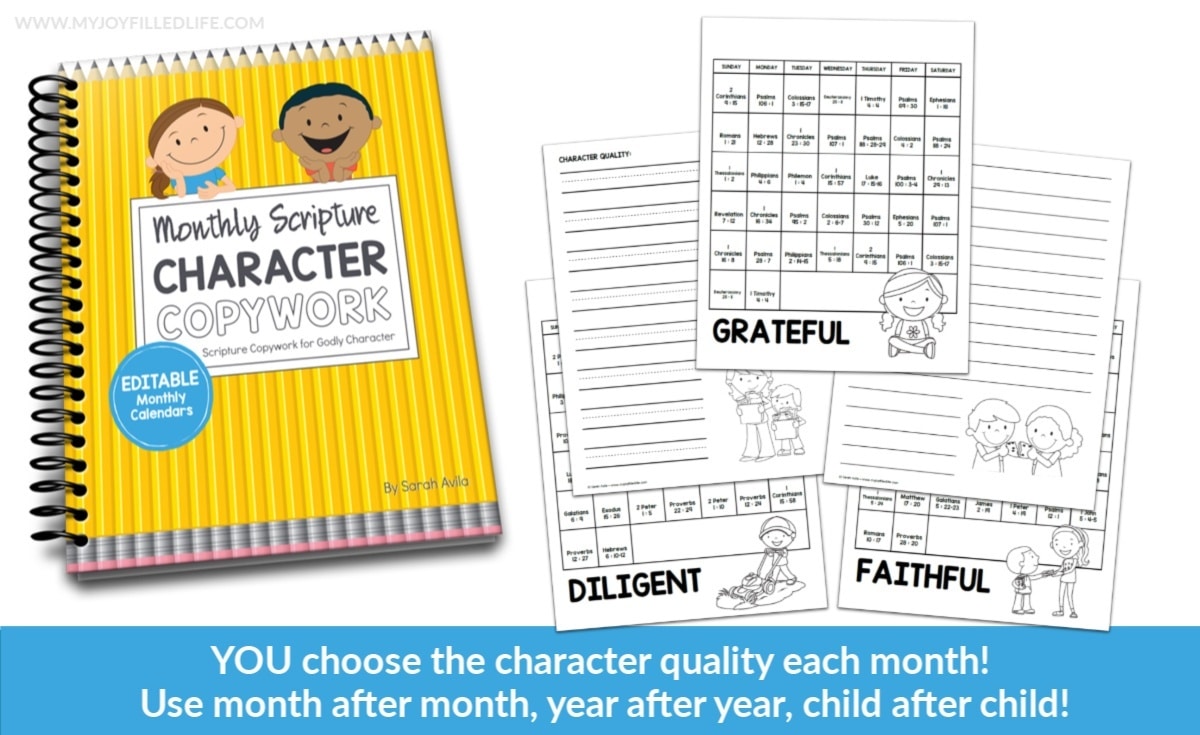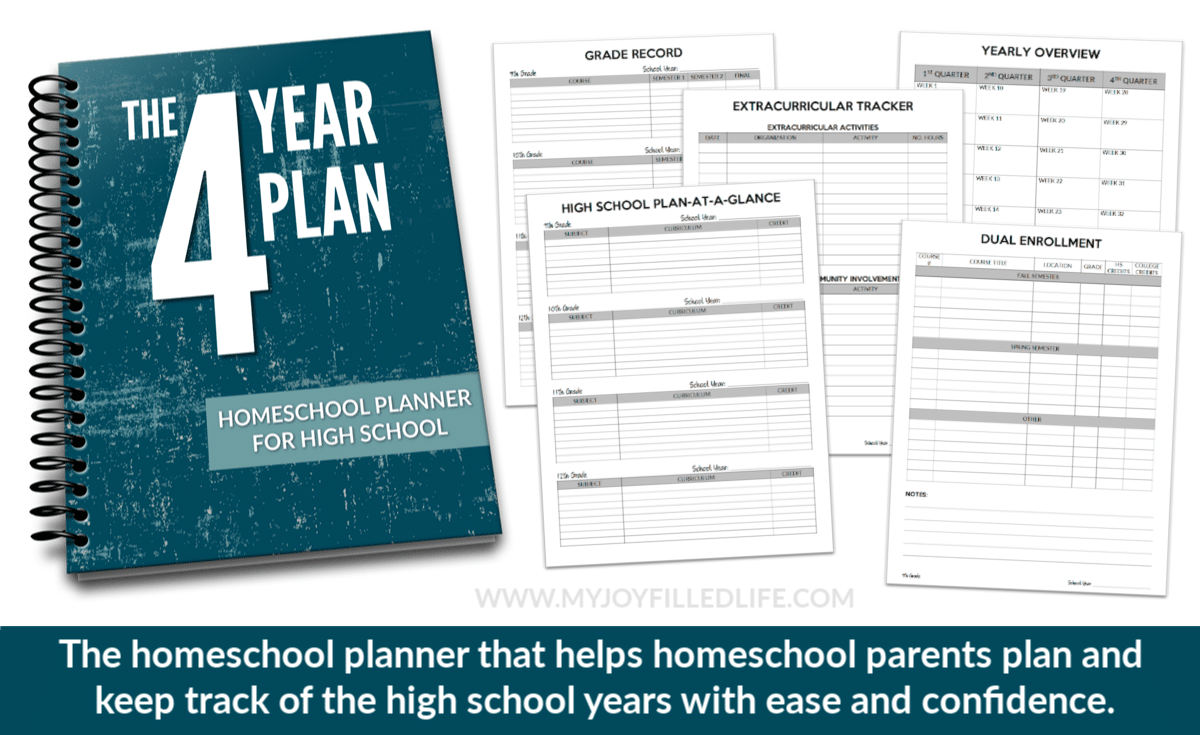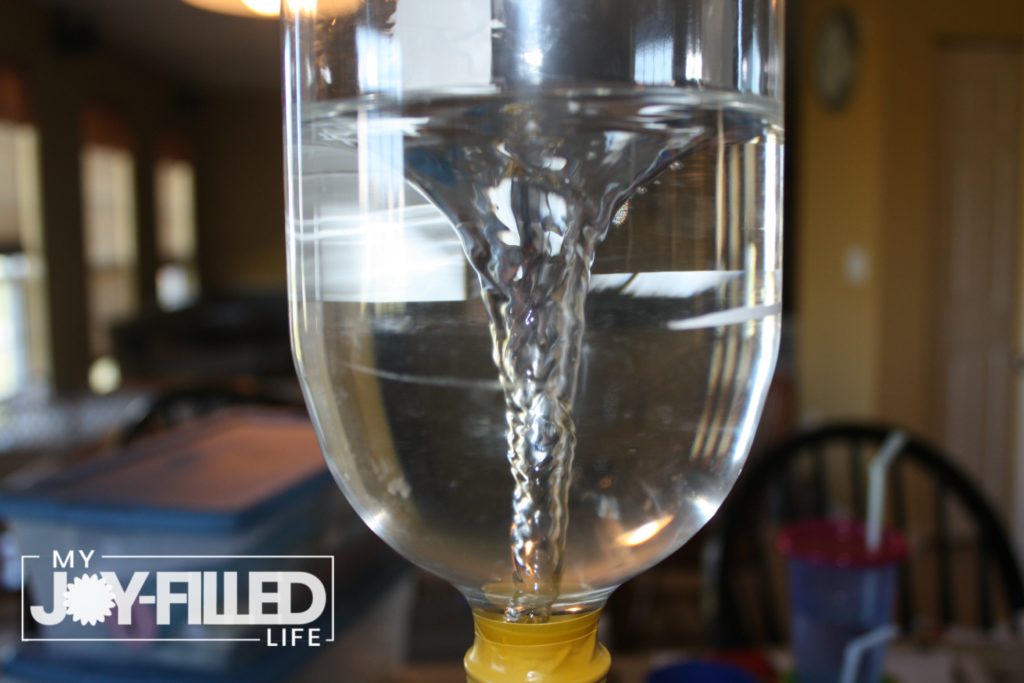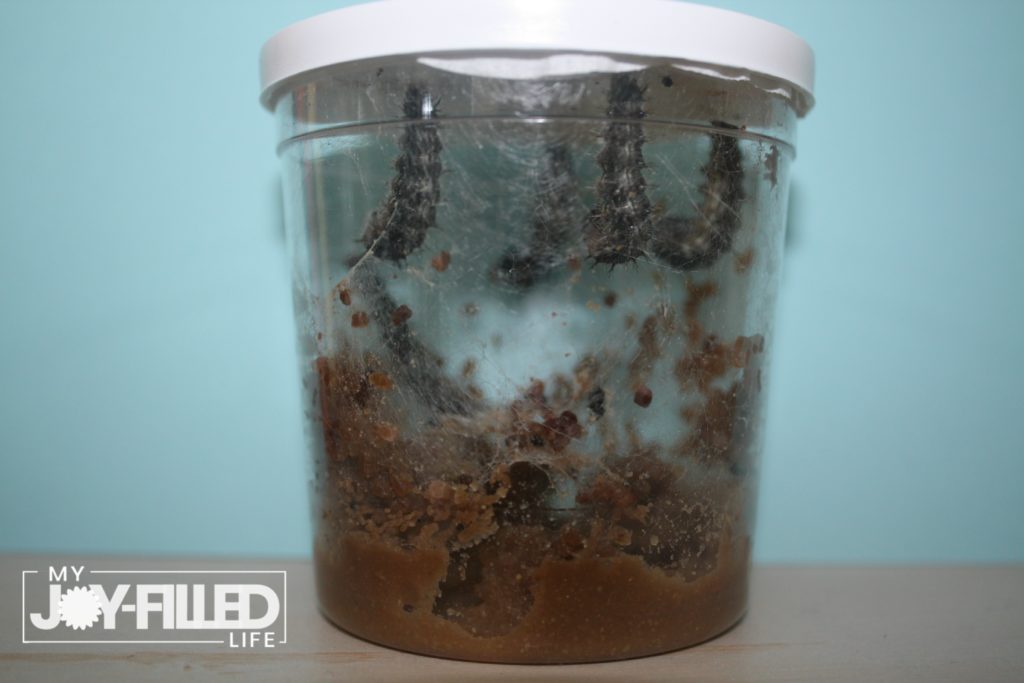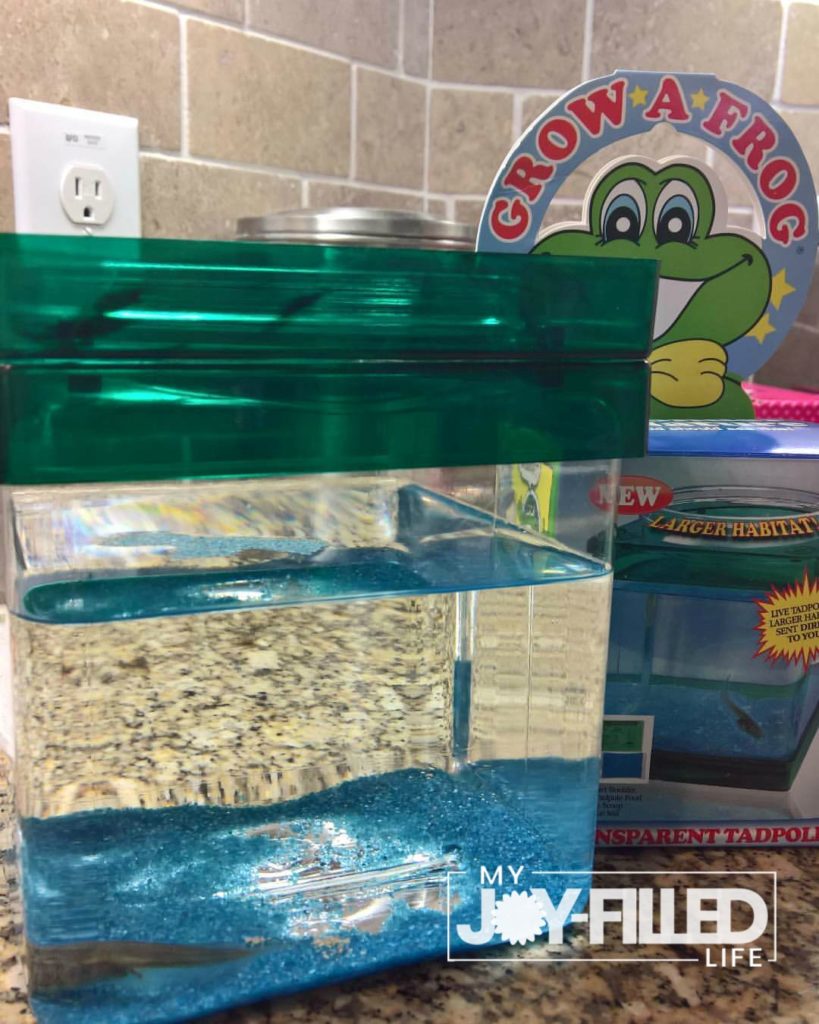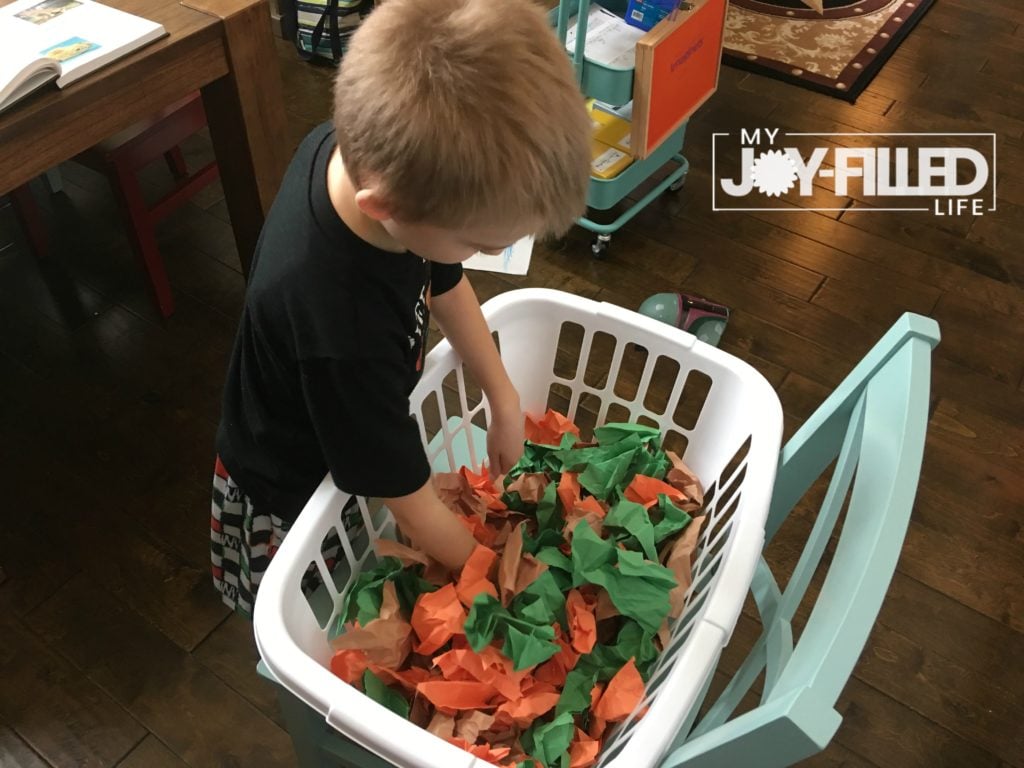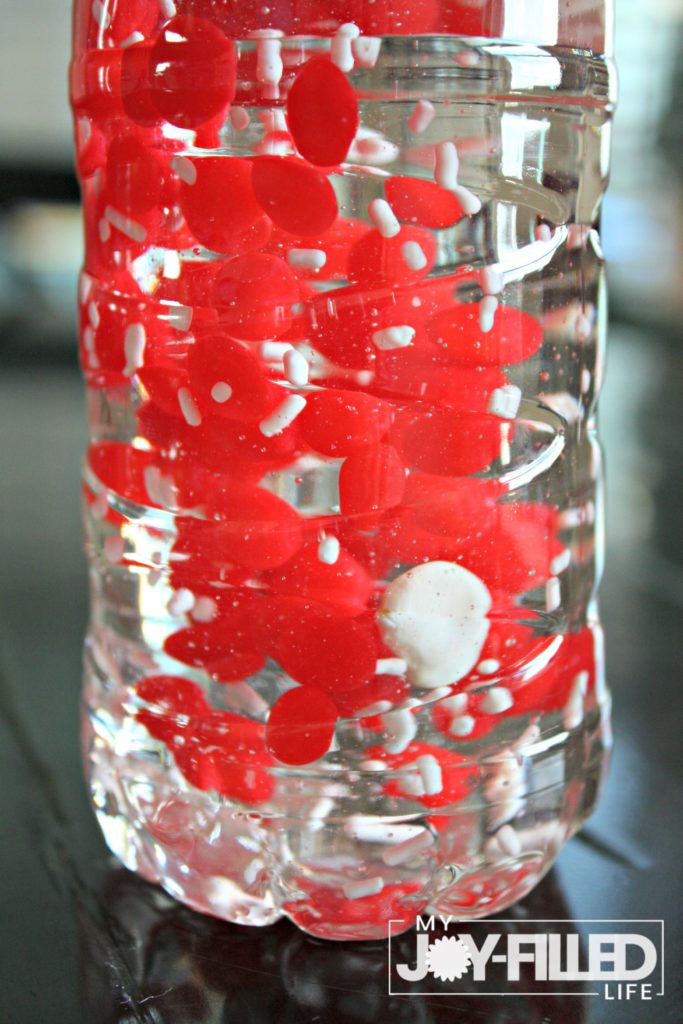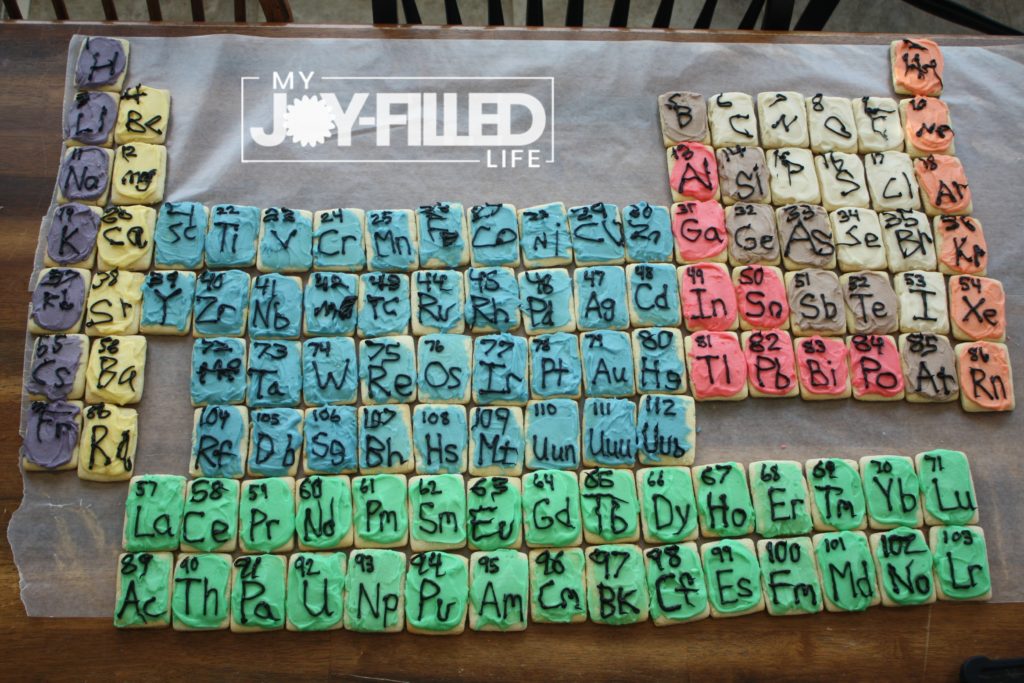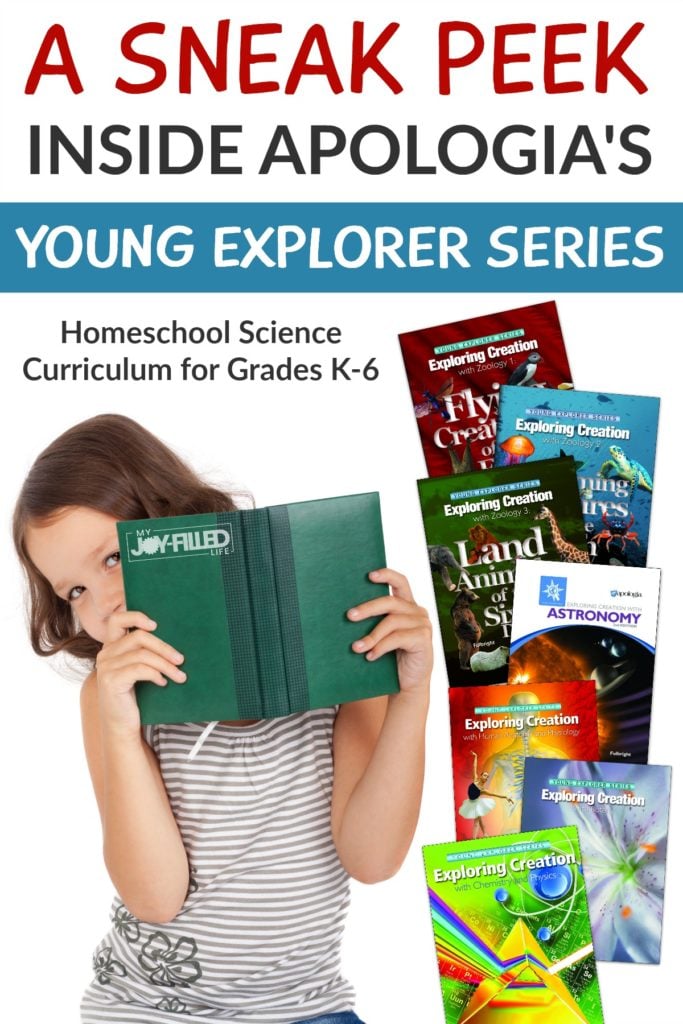I’m so thankful that we found a homeschool science curriculum that we love early on in our homeschool journey. It’s such a blessing and a relief when you are able to find a curriculum that is a good fit and works for your family. That curriculum for us is the Young Explorer Series from Apologia.
The Young Explorer Series immerses your student in seven different course offerings through a combination of reading, hands-on experiments and projects, narration activities, and notebooking.
The seven courses offered in this series are –
- Exploring Creation with Astronomy
- Exploring Creation with Botany
- Exploring Creation with Zoology 1 – Flying Creatures – Read My Review
- Exploring Creation with Zoology 2 – Swimming Creatures
- Exploring Creation with Zoology 3 – Land Animals
- Exploring Creation with Human Anatomy & Physiology
- Exploring Creation with Chemistry & Physics – Read My Review
All of the Apologia Young Explorer Series elementary science courses are geared toward children in grades K-6. Each course consists of a text book and notebooking journal; the notebooking journal is optional, but makes a great complement for the course and keepsake afterwards. The retail price of the text book is $42, and the retail price of the Notebooking Journal is $29. There is also a Junior Notebooking Journal available for the same price as the regular Notebooking Journal; the Junior Notebooking Journal is perfect for the younger scientist that may have limited writing skills.
Generally, most families will take a school year to complete one course/topic. However, if you have a science buff on your hands, it’s totally possible to do two courses in one year, perhaps doing one per semester.
Since we’ve been using Apologia for our elementary science curriculum for roughly seven years and we have done all of the courses except one (Botany), I thought it would be fun and hopefully beneficial to you to write a post that gives you a little peek into the Young Explorer Series courses.
Here is a video that gives an overview of the entire Young Explorer Series as well as a peek inside the textbooks and notebooking journals.
Astronomy
The Young Explorer Astronomy course now has a second edition. I am only familiar with the first edition, as that is the one we own and have done, so please note that the first and second editions most likely differ a bit.
In this course, students will learn about the solar system and the stars. This includes the sun, the planets, the asteroid belt, dwarf planets, and the Kuiper belt. They will also learn about galaxies, nebulae, and black holes.
Some of the fun projects and experiments that you will find in the Astronomy course are –
- build a model solar system
- make a solar eclipse
- learn how radar is used
- make a telescope
- make a hurricane tube
Botany
This is the one Young Explorer course that we have not studied yet. We do own the book, so I have flipped through it to see what fun things we will get to do in that course.
Some of the topics your kids will learn about in this course include classifying plants, the development of plants from seeds, the reproduction process in plants, how plants make food, get water and nutrients, and how they distribute them.
These are some of the activities and projects you’ll find in the Botany course –
- make a light hut and grow herbs
- flower dissection
- make a butterfly garden
- flower pollination
- make a leaf skeleton
- celery experiment
Zoology 1 – Flying Creatures
We really had a lot of fun with this one. I wasn’t so sure on how we would like a full-year course on just flying creatures, but it ended up being a lot of fun. The kids learned a lot and did a lot of memorable activities. You can see my review on Zoology 1 here.
In Zoology 1, kids will learn about the physical characteristics, nesting habits, and flight patterns of birds. They will also learn how to attract various bird species to your yard. Then they will then move on and learn about bats. The course finishes off with the study of insects, including flies, crickets, moths, caterpillars, and butterflies.
Check out this ultimate list of resources that you can use along with Zoology 1.
Here are some of our favorite projects from this course –
- nature scavenger hunt
- build bird feeders
- build a birdhouse
- make a fossil egg
- make an ant farm
- watch caterpillars turn to butterflies – we used this kit
Zoology 2 – Swimming Creatures
My kids love marine animals, so we especially enjoyed Zoology 2. I never realized just how big the underwater animal kingdom is until going through this course with my kids. This course covers swimming creatures in rivers and streams to lakes and oceans… from microscopic organisms to massive sea creatures.
Your children will learn about whales and dolphins, seals and manatees, sea turtles, snakes, and of course fish and sharks, as well as crabs, sea snails, octopus, squid, coral, and plankton.
As your child learns about each kind of animal, they will add a clay model that they create to their Ocean Box. The Ocean Box is an aquarium diorama that they will work on throughout the entire course.
Your kids will do these projects and experiments as well –
- sound travel experiment
- learn how blubber works
- watch as tadpoles turn into frogs – we used this kit
- make an animal quiz game
- make a conchology box
- learn about desalination
Zoology 3 – Land Animals
Zoology 3 is the last of the zoology courses (and no, you do not have to study them in order). In this course, your child will explore jungles, deserts, forests, farms, and their own backyard and learn about all of the animals that live in these habitats.
Throughout the course, students will work on their map skills as they keep a record of where each animal is found on a map. They will also be learning to identify animal tracks throughout the course as they learn about the different animals.
These are some of the projects and activities that you will find in Zoology 3 –
- learn how animals use camouflage to help them survive
- predator/prey relationship activity
- capture animal tracks in your backyard
- depth perception experiment
- dissect an owl pellet
- research poisonous snakes in your area
Human Anatomy and Physiology
This is probably my favorite course in the Young Explorer Series. Before becoming a mom, I was a registered nurse. I’ve just always been fascinated by the human body and this course is just amazing with all of the creative projects and experiments to help kids learn about their own bodies.
This course starts off with a brief history of medicine and a look at cells and DNA. Your child will then learn about all of the major body systems (skeletal, muscular, respiratory, digestive, cardiovascular, nervous, renal, endocrine, integumentary, lymphatic, and immune; the reproductive system is NOT covered in this course), as well as blood, health and nutrition, the five senses, and growth and development.
As they work through the course, your child will add the organs that they learn about to a personalized human body figure that will be kept in their notebooking journal (learn how to make your own notebooking journal for human anatomy and physiology here).
They will also do many of the following activities throughout the course –
- make an edible cell out of Jell-O
- test for Vitamin C in various foods
- make a diaphragm/lung model
- make a model of blood
- find out your blood type
- make a homemade stethoscope
Chemistry and Physics
This is the course that we are using this year for my 4th and 6th grade students. This will be the 3rd time we’ve used this course in our family, although this time my girls will be using it in our homeschool co-op. I’m excited to be helping out in their class because this course has some really neat activities.
The course starts out by exploring the basic building blocks of creation – atoms and molecules – and then covers simple chemicals, the laws of motion, energy in its many forms, electricity and magnetism.
It will be hard to pick a favorite activity from this course; here are some of the ones you’ll find –
- make a lava lamp
- replicate the earth’s water cycle
- make an edible periodic table of the elements
- grow crystals
- make a smoke bomb – watch our experiment in action here
- make homemade butter
- create a physical reaction with Mentos and soda – watch our experiment in action here
There are so many great things that we love about the Young Explorer Series from Apologia.
To be able to have multiple kids using the same course is extremely beneficial for any homeschool family, but especially those with many kids. I’m grateful anytime I can have more than one kid doing the same course.
The complementing notebooking journals are wonderful. Not only do they provide a place to keep track of projects and experiments and help reinforce concepts with review questions and activities, but it makes a great keepsake of their science explorations.
I appreciate the immersive, Charlotte Mason methodology used in all of the courses. Instead of having my kids learn a little of this and a little of that in their science courses, they learn about one topic and focus on that for the entire year. It’s about quality, not quantity with Apologia. By studying topics more in depth, my kids are more likely to remember the information we covered.
The Young Explorer Series is easy on the teacher and fun for the whole family! The layout of the course is easy to follow, a supply list for all of the experiments and projects is provided for you, and if you buy the notebooking journal, a weekly schedule is all laid out for you. From just the sample of activities I listed above, you can see for yourself just how fun and exciting this elementary science curriculum is (check out the FREE Apologia Science Activity eBook to try some out yourself). Often times when we do an experiment, we will grab the whole family to enjoy the experience.
But, the thing we love most about this curriculum is that it is God-centered. I love how the author, Jeannie Fulbright, points out God’s handiwork at every opportunity. For me, this is very important when choosing a curriculum. So, if you’re looking for a God-centered, creation-based science curriculum for your elementary students, Apologia’s Young Explorers series might be the perfect fit for your family.
Be sure to check out these FREE digital resources from Apologia –
Apologia Science Activity eBook


